Best Value PSLs in 2021
When a fan buys a single-game ticket, they’re hoping for a win. When a fan buys a personal seat license so they can get in on season tickets, they’re buying a vested interest in the team’s success.
Sports ticket marketplaces are a lot like the stock market: they reveal as much about what people think the future will hold as what’s happening right now. Prices for the next few games often reflect how the team has been doing. Tickets for later in the season are a bit more speculative. Will the week 15 match-up be a nail-biter with playoff implications, or will it be a drubbing? Buying that week 15 ticket after starting the season 0-3 can seem like a stroke of genius – or just total commitment to the team – if the team ends up stringing together a 10-game win streak.
The personal seat license market takes the long view. People usually buy and sell PSLs in the off-season. If the last season ended poorly, the coaching staff is in disarray and the draft was a dud, PSL holders may think this is the time to unload. Savvy watchers, though, may see the opportunity to buy low and celebrate high after the team outperforms expectations.
We took a look at how many personal seat licenses are on the market around the NFL and how much they are selling for, and matched that up against our completely non-scientific takes on the draft and the season ahead to find the best value PSLs across the NFL.
5. Pittsburgh Steelers
Yeah, we were surprised, too. Sure, they’ve only had two playoff appearances in the last four years, neither of which lasted very long. But the Steelers still finished atop the AFC North in both years and four of the last seven seasons. You have to go back to 2003 to find a season below .500. They had one of the best draft classes of 2021, led by Alabama running back Najee Harris.
And they’re the Pittsburgh freaking Steelers! Never, ever count out the Steelers, and never, ever, ever count out their fans.
Anyone within reach of the Three Rivers can get the deal of a lifetime – literally, a lifetime, since that’s how long some PSL holders keep theirs – buy scooping up a personal seat license for the Steelers this summer.
4. Cincinnati Bengals
The Bengals are one of those teams that seems to be perpetually in a “rebuilding season,” and next season will be another. The last time they made the playoffs, Tom Brady was still in his mid-30s. No one’s been Ickey shuffling for quite some time.
So is this their year? We’ll leave that level of optimism up to you. All we’ll tell you is that, if this or one of the next few years ends up being “their year,” this summer is good time to go for a PSL. There are a lot on the market, keeping the price low. The value of the PSL and the tickets themselves will either go up as results improve; or things will stay the same and the PSL will be an affordable way to keep yourself occupied for eight Sundays each of the next few seasons.
If you’re a Bengals fan (which, why would you be buying a PSL if you weren’t?) you know the power of hope. Right now, the team’s PSLs reflect a lot of room for hope.
3. Tennessee Titans
This might be the biggest growth opportunity on our list. Nashville is one of those “It Cities.” Regardless of how the Titans do the next few years, the city of Nashville is going to do quite well for itself. People are moving there at record rates. Some of them will convert to being Titan fans, and they’re going to start snapping up PSLs.
After a long stretch away, they reached the playoffs three of the last four seasons. Derrick Henry lit up the backfield last season, and their 2021 draft focused on their defense, setting themselves up for a well-balanced squad.
Last we looked, just under 400 Titans PSLs were on the market. We don’t expect that to last for long. Not with the city’s population growth and the team’s prospects.
In short, in keeping with the spirit of Nashville, this is the time to buy a PSL so you can say you had one before it was cool.
2. Carolina Panthers
The Panthers didn’t build well on their appearance in Super Bowl L. They’ve only had one winning record and a single playoff game since then. Cam Newton decamped to New England. And they’re on their third coach since the start of the 2019 season.
At the upside, that third coach is Matt Rhule. Rhule was one of the top talent developers in the college game at Temple and Baylor, and is heading into his second season with a young squad. He knows how to build teams, and the Panthers don’t have many places to go but up. The same goes for their PSL prices, which are currently tracking their recent performance. If Rhule sends them up the standings, we’ll look back on this summer as the best time to have bought a PSL.
1. San Francisco 49ers
We’ll finish this list the way we started it: with a surprise. Seriously, the 49ers? Two years removed from being in the Super Bowl. Kyle Shanahan at the helm. Trey Lance with the 3rd overall pick in the 2021 draft. The full weight of this team’s history.
And yet there’s still a good number of low price PSLs on the market?
We can’t explain it. We just know an opportunity when we see one. If you’re in the Bay Area, you probably know a thing or two about value stocks and buy low / fly high opportunities. Somehow, the 49ers season tickets are a buyer’s market. Now’s the time to be that buyer.
Need some objectivity? Try the T-VAL
If you’re not interested in our unscientific takes on how teams will perform this season, we’ve got something to satisfy your need for rigorous, data-driven output: the T-VAL. If you have a personal seat license and want to know what’s it worth, the T-VAL offers an unprecedented level of objectivity and transparency for PSL valuation.
We can’t tell you how your team will do, but we can tell you the value of where you’re sitting.
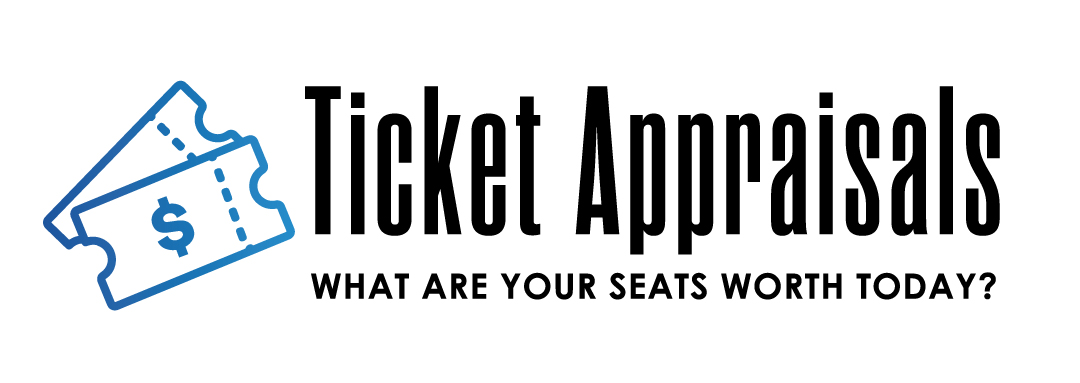




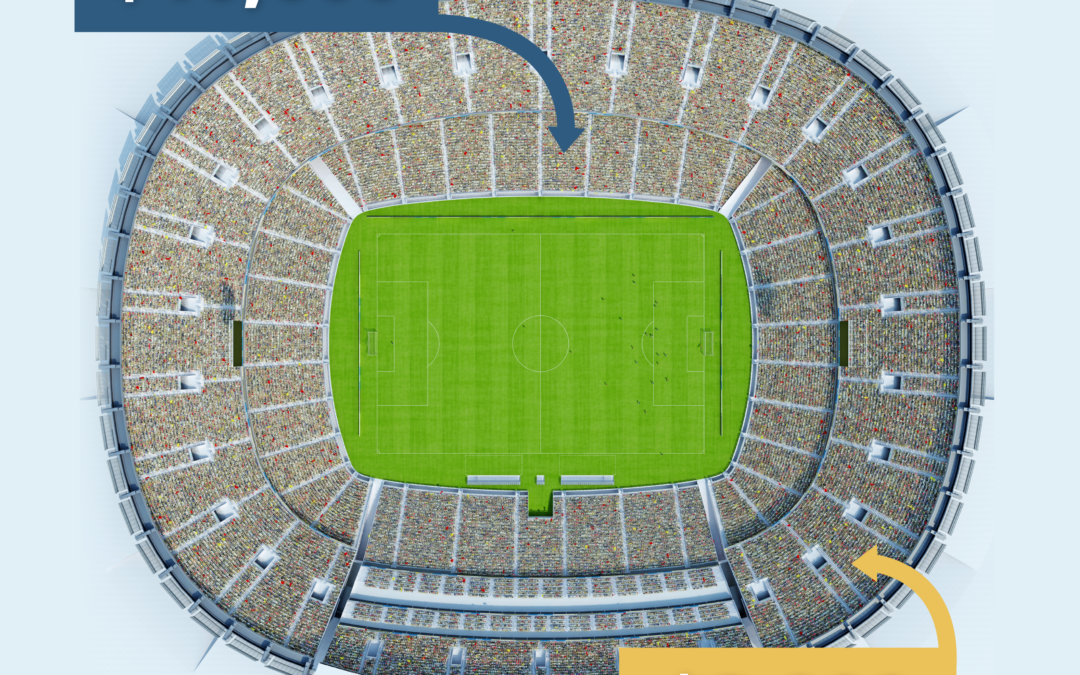
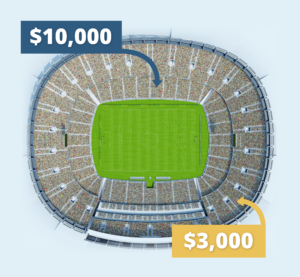
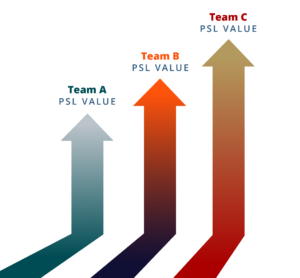




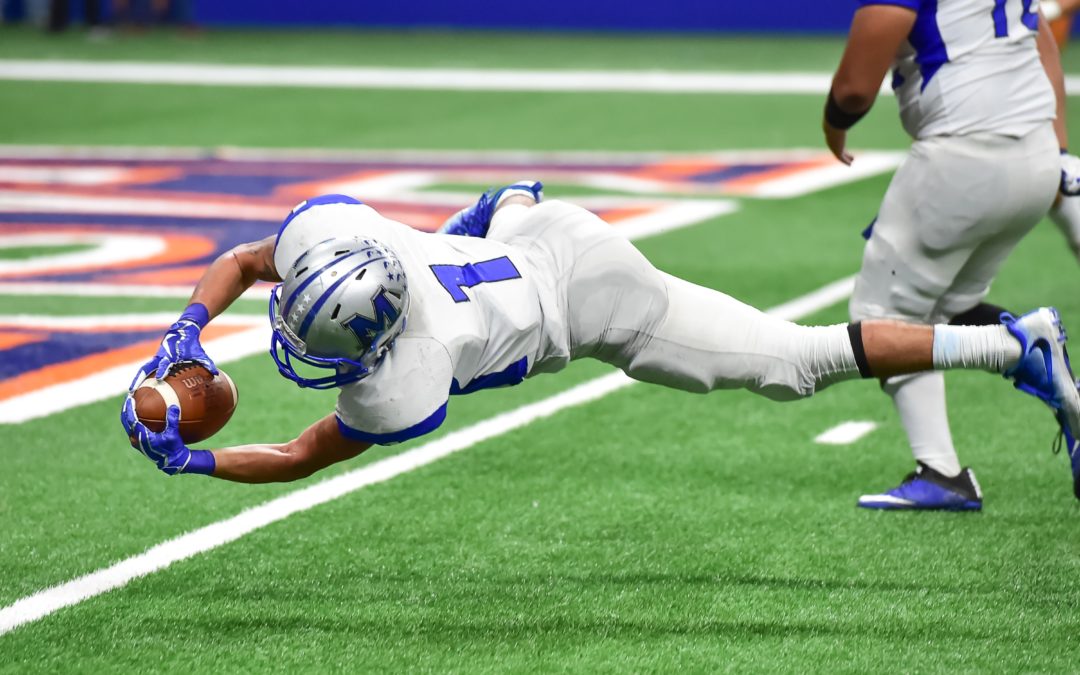
Recent Comments